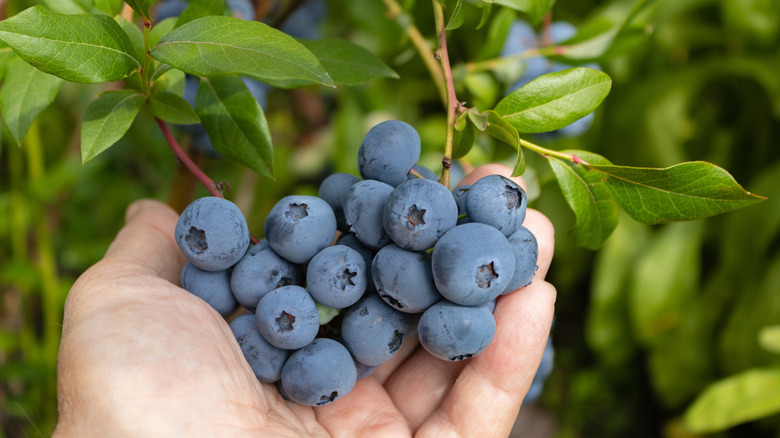
If you’re on a high-protein or keto diet, fruit might not be a top priority on your shopping list. However, when it comes to weight loss within a balanced diet, fruit can actually be a valuable ally. While some fruits are naturally high in sugar, many are rich in soluble fiber, which helps you feel full longer and reduces the urge to overeat. This fiber also promotes gut health, which is essential for maintaining a healthy metabolism (here’s how much fiber you need each day).
Consider adding blueberries to your diet. They are sweet enough to satisfy a sugar craving without derailing your calorie goals, with just 84 calories in a cup. Blueberries also provide 3.6 grams of fiber, which nurtures the beneficial bacteria in your gut and aids in appetite control.
Even after achieving weight loss, you might want to keep blueberries in your daily diet. They are rich in vitamin C, a potent antioxidant that helps your body combat harmful free radicals. Furthermore, the plant compounds in blueberries may help slow or inhibit the growth of cancer cells.
The compounds in blueberries that fight cancer

Blueberries owe their deep color to anthocyanins, which are plant-based antioxidants. A 2005 study in the Journal of Agricultural and Food Chemistry examined how anthocyanins and other natural compounds in blueberries impacted colon cancer cells in the lab. Among the compounds tested, anthocyanin extracts were the most effective at slowing cancer cell growth and inducing cell death. Flavonols and tannins—two other plant-based compounds found in blueberries—also contributed to reducing cancer cell growth, though higher doses were necessary to achieve the same effect.
Triple-negative breast cancer is one of the most aggressive forms of breast cancer. A 2012 article in Cancer Research indicated that blueberry extract slowed the growth of triple-negative breast cancer cells in the lab without affecting healthy breast cells. The extract lowered levels of proteins that facilitate cancer spread and increased levels of proteins that inhibit it. It also disrupted key signaling pathways that cancer cells utilize for survival and growth. In mice, blueberry extract resulted in smaller tumors, fewer actively growing cancer cells, and increased cancer cell death.
Other health benefits of blueberries

Besides their benefits for weight loss and cancer prevention, blueberries offer other health advantages. According to a 2020 review in Advances in Nutrition, the anti-inflammatory and antioxidant properties of blueberries may lower the risk of cardiovascular disease by reducing cholesterol, blood pressure, and arterial stiffness. The anthocyanins in blueberries and other berry fruits may decrease the risk of type 2 diabetes by enhancing insulin sensitivity while minimizing oxidative stress. Blueberries may also benefit brain health, potentially improving cognitive function in older adults and children. Anthocyanins may also help maintain vision.
The best part about blueberries is their availability year-round. Fresh blueberries are available from April to October, and frozen blueberries can be found anytime in the freezer aisle. A half-cup adds a naturally sweet, tangy touch to your morning oatmeal or yogurt. You can also add them to pancakes or muffins for a burst of flavor. For a refreshing, post-workout boost, blend frozen blueberries with vanilla protein powder and your choice of milk for a smoothie that’s high in protein and rich in antioxidants.




